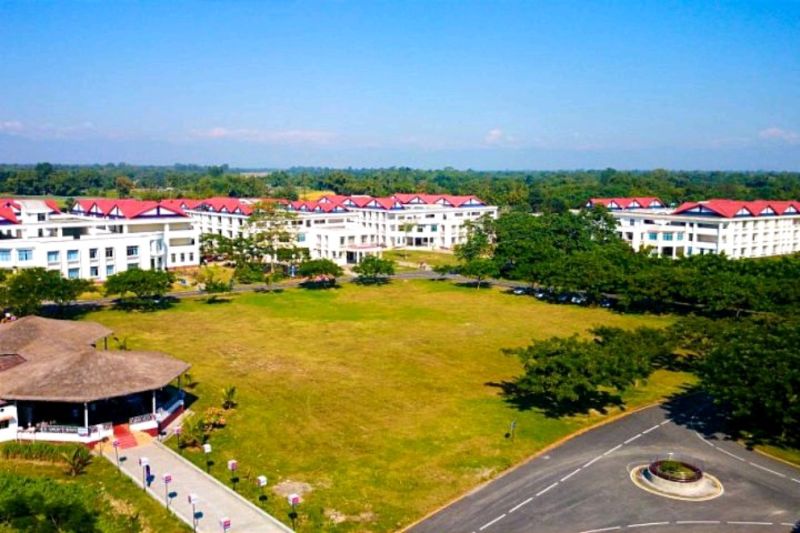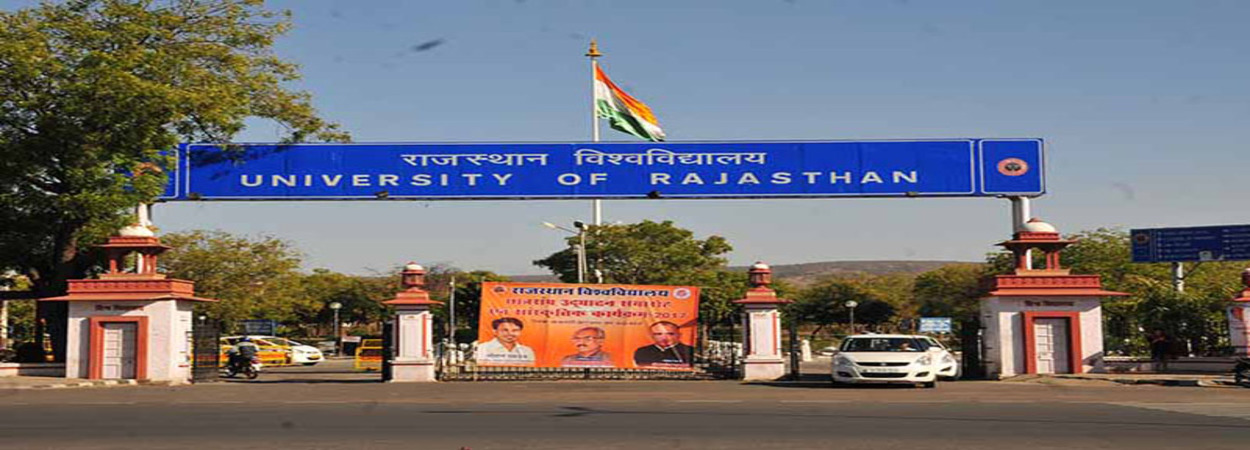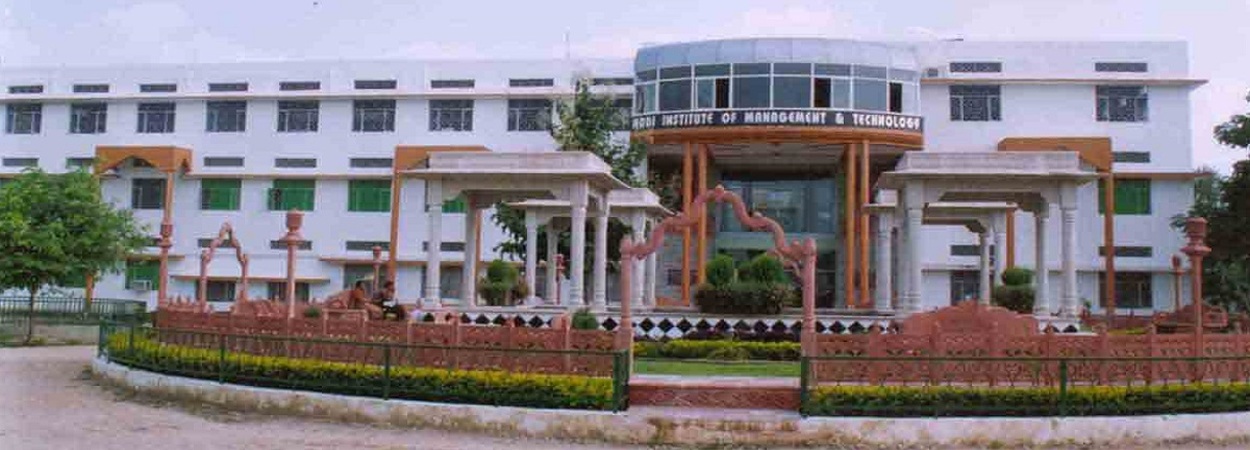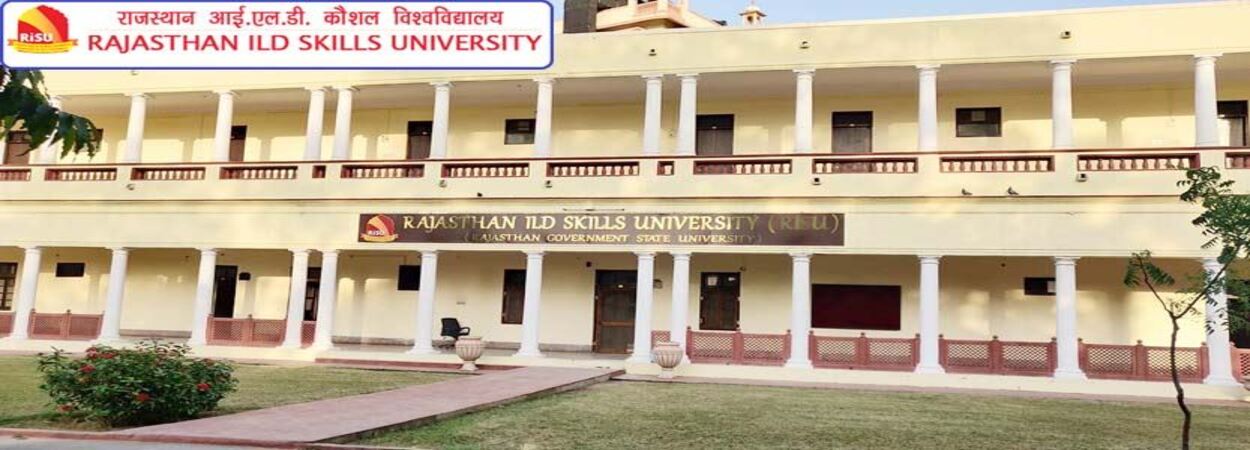Introduction about Ph.D. From Assam Rajiv Gandhi University of Cooperative Management
Assam Rajiv Gandhi University of Cooperative Management (ARGUCOM) stands as a pioneering institution in India, specifically established to strengthen and expand the cooperative management education ecosystem. Located in the culturally rich and scenic state of Assam, ARGUCOM focuses on bridging the gap between theoretical learning and practical application in the domains of business management, cooperative studies, rural development, and allied areas. With a mission to empower students to become thought leaders and change agents, ARGUCOM has designed its Ph.D. program to be rigorous, interdisciplinary, and deeply rooted in the contemporary needs of the cooperative sector.
The Ph.D. program at ARGUCOM emphasizes both academic rigor and real-world impact. Scholars are encouraged to engage in innovative research that not only advances theoretical frameworks but also addresses pressing challenges faced by cooperatives, rural communities, and development agencies. The university’s faculty comprises accomplished academicians and industry professionals who provide valuable mentorship, guiding doctoral candidates through the intricacies of advanced research methodologies, critical analysis, and scholarly writing. Moreover, ARGUCOM maintains strong ties with government bodies, international organizations, and local cooperatives, ensuring that students have ample opportunities for fieldwork, data collection, and collaboration.
For aspiring researchers, the Ph.D. journey at ARGUCOM offers a dynamic blend of coursework and research-based inquiry. Doctoral scholars undergo specialized coursework in research methods, cooperative management theories, and elective subjects aligned with their research interests. This is complemented by hands-on experience through workshops, seminars, and internship opportunities, which hone the scholars’ analytical, managerial, and leadership skills. Whether your goal is to become a university professor, a policy advisor, a high-level manager in cooperative sectors, or an entrepreneur, the Ph.D. program at ARGUCOM serves as a transformative platform.
In the following sections, you will find detailed information about the fee structure, admission process, required documents, syllabus layout, research methodology, university highlights, scholarship provisions, and frequently asked questions. This comprehensive overview aims to help prospective candidates make an informed decision about pursuing a doctoral degree at ARGUCOM. With its student-centric approach and commitment to excellence, ARGUCOM continues to shape future leaders who can drive sustainable growth and inclusive development in Assam, across India, and even internationally.
Fee Structure for Ph.D. in Assam Rajiv Gandhi University of Cooperative Management
| Tuition Fee Per Year | Registration | Total Fee |
| INR 50,000 | INR 5,000 | INR 55,000 |
| INR 60,000 (for specialized streams) | INR 5,000 | INR 65,000 |
Admission Process For Ph.D. in Assam Rajiv Gandhi University of Cooperative Management
The admission process for the Ph.D. program at Assam Rajiv Gandhi University of Cooperative Management (ARGUCOM) is structured to identify and nurture candidates who exhibit a strong inclination towards research, innovation, and scholarly excellence. It involves multiple stages, ensuring that only the most dedicated and qualified applicants are admitted. Below is a detailed outline of the steps you can expect when applying for this prestigious program.
- Check Eligibility: Confirm that you possess a Master’s degree in a relevant field with the minimum required marks or CGPA, usually around 55%. Candidates from reserved categories may receive certain relaxations in eligibility criteria.
- Obtain Application Form: Visit the official ARGUCOM website or campus to download or collect the Ph.D. application form. Carefully review all instructions before filling it out.
- Submit Required Documents: Prepare copies of academic transcripts, identity proof, research proposal, and other documents specified by the university. Ensure that these documents are attested if required.
- Entrance Examination: Appear for the Ph.D. entrance exam conducted by ARGUCOM (if applicable). This exam evaluates your research aptitude, subject knowledge, and analytical abilities.
- Interview/Presentation: Shortlisted candidates will be invited to present their research ideas or attend an interview with a doctoral committee. This is a critical stage where you showcase your research potential.
- Final Selection: Successful candidates will be notified through a merit list or direct communication. You must then complete the enrollment process, including fee payment, within the given timeline.
- Coursework Registration: Once admitted, you will register for Ph.D. coursework, which typically includes research methodology and specialized subjects aligned with your research area.
- Research Proposal Approval: You will be guided to refine and finalize your research proposal under faculty supervision, setting the stage for your doctoral research journey.
Document Required For Ph.D. in Assam Rajiv Gandhi University of Cooperative Management
As part of the application process, ARGUCOM mandates the submission of various documents to verify academic qualifications, identity, and research preparedness. It is crucial to compile these documents well in advance to avoid any last-minute hassles. Below is a comprehensive list of the documents you are generally expected to provide:
- Completed Application Form: Ensure all sections are filled accurately with up-to-date information.
- Academic Transcripts: Attested copies of mark sheets and degree certificates from 10th, 12th, Bachelor’s, and Master’s programs.
- Proof of Date of Birth: Birth certificate or equivalent document (e.g., Class 10 certificate) serving as official proof.
- Photo Identification: A valid government-issued photo ID such as Aadhaar Card, Passport, or Voter ID.
- Research Proposal: A detailed document outlining your proposed research area, objectives, methodology, and expected outcomes.
- Experience Certificates (if any): Documents reflecting relevant work or research experience that could bolster your application.
- Passport-Sized Photographs: Recent colored photographs as per the university’s specifications.
- Migration Certificate: If you completed your Master’s from a different university, a migration or transfer certificate may be required.
- Category Certificate: SC/ST/OBC/EWS certificate (if applicable) for reservation benefits.
- Entrance Exam Score Card: If the university has conducted a Ph.D. entrance test, attach the official scorecard.
Assam Rajiv Gandhi University of Cooperative Management Ph.D. Syllabus
| Semester/Phase | Subjects | Description |
| Coursework (Initial Phase) | Research Methodology & Advanced Statistics | Focuses on qualitative and quantitative research methods, data collection techniques, and statistical tools essential for doctoral-level research. |
| Coursework (Initial Phase) | Theory of Cooperative Management | Explores the foundational principles of cooperatives, governance, cooperative law, and strategic management within cooperative frameworks. |
| Coursework (Initial Phase) | Literature Review & Research Ethics | Trains scholars in systematic literature surveys, referencing, ethical considerations, and academic integrity in research. |
| Research Phase | Elective Papers (Domain-Specific) | Candidates select specialized electives based on their research focus, e.g., rural development, finance, marketing, organizational behavior. |
| Research Phase | Proposal Development | Guided formulation of a detailed research proposal, including objectives, hypothesis, methodology, and proposed timeline. |
| Research Phase | Field Work/Case Studies | Practical exposure through field visits, data gathering, and case study analysis to validate or refine research hypotheses. |
| Research Phase | Thesis Writing & Viva Voce | Compilation of research findings into a formal thesis, followed by a defense presentation in front of an expert panel. |
Assam Rajiv Gandhi University of Cooperative Management Research Methodology
- Quantitative Analysis: Emphasizes statistical modeling, econometric analysis, and hypothesis testing to derive measurable insights.
- Qualitative Techniques: Utilizes interviews, focus groups, ethnography, and narrative analysis to capture contextual and in-depth perspectives.
- Mixed Methods: Integrates both quantitative and qualitative approaches to provide a holistic view of complex research problems.
- Comparative Case Studies: Evaluates multiple cooperative or organizational models, facilitating cross-sectoral learning and best practices.
- Action Research: Encourages researchers to collaborate with local communities or cooperatives, implementing and assessing practical solutions.
- Ethical Frameworks: Stresses informed consent, data confidentiality, and responsible dissemination of findings.
- Interdisciplinary Approaches: Encourages blending insights from economics, sociology, political science, and environmental studies to enrich the research process.
- Advanced Data Analysis Tools: Employs software like SPSS, R, or NVivo for complex statistical computations and thematic analysis.
Assam Rajiv Gandhi University of Cooperative Management Highlights
| Aspect | Details |
| Establishment Year | 2010 |
| Location | Sivasagar, Assam, India |
| Recognition | State University recognized by UGC |
| Core Specializations | Cooperative Management, Business Administration, Rural Development |
| Mode of Education | Full-time, Part-time, and Limited Distance Learning options |
| Faculty Expertise | Blend of academicians and industry experts with notable publications |
| Research Collaborations | MoUs with cooperative societies, government agencies, and corporate partners |
| Infrastructure | Modern research labs, digital library, Wi-Fi enabled campus, and hostels |
| Scholarships | Merit-based, need-based, government-funded, and industry-sponsored |
| Campus Culture | Workshops, conferences, student clubs, cultural fests, and sports meets |
| Placement Support | Career counseling, internship placements, and campus recruitment drives |
| Official Website | argucom.assam.gov.in |
How To Apply For Ph.D. in Assam Rajiv Gandhi University of Cooperative Management
- Visit the Official Website: Head to ARGUCOM’s official portal and find the “Ph.D. Admissions” or “Research Programs” section for up-to-date information.
- Download the Application Form: Access the Ph.D. application form or online portal. Carefully read the instructions before filling in your details.
- Fill in Your Details: Provide accurate personal information, academic qualifications, and contact information. Double-check for errors or omissions.
- Craft Your Research Proposal: Develop a clear, concise, and compelling proposal outlining your research topic, objectives, methodology, and potential contributions to the field.
- Gather Required Documents: Collect academic transcripts, ID proof, photographs, category certificates (if applicable), and experience certificates. Make sure they are attested as per guidelines.
- Pay the Application Fee: Submit the prescribed fee through online payment, bank challan, or demand draft, as instructed in the application guidelines.
- Submit the Form: Send the completed application form and documents either online or via post to the university’s admission office. Keep copies of all submitted materials for your records.
- Entrance Exam & Interview: If mandated, appear for the Ph.D. entrance exam. Shortlisted candidates will be called for an interview or a presentation before a panel of experts.
- Check Merit List: Stay updated with the official website or university notice board for the announcement of successful candidates.
- Complete Enrollment: Upon selection, finalize your admission by paying the course fees and submitting any additional documents requested by the university.
Courses After Ph.D. in Assam Rajiv Gandhi University of Cooperative Management
- Post-Doctoral Fellowships: Engage in advanced, often funded, research projects that allow you to deepen your expertise and build a robust academic profile.
- Executive Education Programs: Short-term courses focusing on leadership, strategy, and policy-making to complement your doctoral expertise.
- Advanced Certifications: Specialized programs in project management, data analytics, or corporate governance to diversify your skill set.
- Faculty Development Programs: Ideal for those aspiring to academic careers, these programs enhance teaching methodologies, research skills, and academic leadership abilities.
- International Collaborations: Opportunities to join research networks or exchange programs with global universities to expand your academic reach.
Assam Rajiv Gandhi University of Cooperative Management Scholarship
Assam Rajiv Gandhi University of Cooperative Management (ARGUCOM) is dedicated to making higher education accessible and equitable, particularly for those who demonstrate academic merit or face financial constraints. The university’s scholarship schemes are designed to ensure that deserving candidates can pursue their Ph.D. without being held back by economic limitations. One of the most prominent forms of financial aid is the merit-based scholarship, awarded to scholars who have exhibited outstanding academic achievements in their previous degree programs. These scholarships often come in the form of fee waivers or monthly stipends, enabling students to focus on their research without worrying excessively about tuition fees.
Another critical dimension of ARGUCOM’s scholarship program is need-based financial assistance. Students from economically weaker sections may qualify for partial or full fee concessions upon submitting the required income certificates and other supporting documents. Additionally, the university encourages candidates from marginalized communities, such as SC/ST/OBC/EWS categories, by providing them with government-funded scholarships or special relaxations in the admission and fee payment processes. Beyond these institutional provisions, ARGUCOM also facilitates collaborations with corporate entities, NGOs, and government agencies that sponsor specific research projects. These collaborations can result in additional grants for Ph.D. candidates, covering fieldwork expenses, data collection, and even conference travel costs.
The process of securing a scholarship typically involves completing an application form, writing a compelling statement of purpose, and providing evidence of your academic and research capabilities. Candidates may also need to furnish recommendation letters from past mentors or employers. Once you have submitted your scholarship application, the university reviews it based on academic records, research proposals, and financial need (if applicable). Successful applicants are notified and must adhere to the stipulated terms, such as maintaining a certain CGPA or fulfilling research milestones. Overall, ARGUCOM’s comprehensive scholarship framework plays a pivotal role in nurturing future scholars who can contribute meaningfully to the cooperative sector and society at large, reflecting the university’s commitment to inclusive, high-quality education.
- Merit-Based Scholarships: Awarded for exceptional academic records and research aptitude.
- Need-Based Scholarships: Tailored for students from economically disadvantaged backgrounds.
- Government-Funded Schemes: Offers financial support to SC/ST/OBC/EWS candidates under specific regulations.
- Industry-Sponsored Grants: Collaborations with corporates and NGOs for project-based funding.
- Research-Specific Assistance: Grants for fieldwork, data analysis, and conference participation.
Assam Rajiv Gandhi University of Cooperative Management FAQ's Regarding Ph.D.
- Q1: What is the basic eligibility for a Ph.D. at ARGUCOM?
Answer: You typically need a Master’s degree in a relevant discipline with at least 55% marks or an equivalent CGPA. Certain relaxations may apply for reserved categories. - Q2: Does ARGUCOM conduct an entrance exam for Ph.D. admissions?
Answer: Yes, in many cases the university conducts an entrance test to gauge research aptitude and subject proficiency. Qualified candidates are then shortlisted for interviews. - Q3: What is the usual duration of a Ph.D. program at ARGUCOM?
Answer: A Ph.D. program typically takes 3 to 5 years, depending on your research progress, coursework completion, and thesis submission timeline. - Q4: Are part-time Ph.D. options available?
Answer: ARGUCOM may offer part-time doctoral programs for working professionals, subject to meeting certain guidelines and departmental approvals. - Q5: How does ARGUCOM support Ph.D. scholars financially?
Answer: The university provides various scholarships, including merit-based, need-based, and government-funded schemes. Industry-sponsored grants may also be available for project-specific research. - Q6: Can I select my own research topic?
Answer: Yes. You can propose a research topic that aligns with your interests and the faculty’s expertise. Your proposal will be reviewed and approved by a doctoral committee. - Q7: Does the university collaborate with external organizations?
Answer: Absolutely. ARGUCOM has partnerships with cooperative societies, government agencies, and private firms, offering extensive scope for fieldwork and collaborative research. - Q8: What facilities are provided to Ph.D. students?
Answer: Doctoral candidates have access to well-equipped libraries, research labs, computer facilities, hostel accommodations, and regular academic events such as seminars and workshops. - Q9: When does the university open Ph.D. admissions?
Answer: The admission cycle can vary each year. You should frequently check the official ARGUCOM website or contact the admissions office for the latest schedule and deadlines. - Q10: What are the career prospects post-Ph.D. from ARGUCOM?
Answer: Graduates often pursue academic roles, join research institutes, or work in policy-making, NGOs, and corporate sectors. Many also become consultants or advisors focusing on cooperative management and rural development.

















